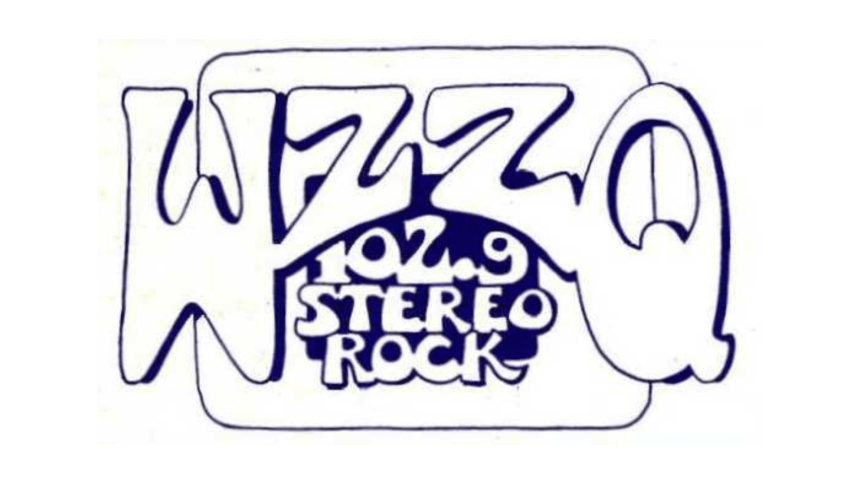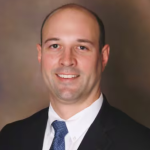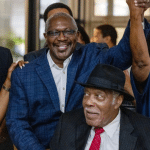July 2, 1981, was the night the music stopped. Dead air for six hours on the most popular station for rockers young and old across the Jackson, Mississippi metro. By the next morning, the genre had been overhauled by corporate country and ZZQ102 as many knew it was gone. Poof. Just like that.
And emotions were high. Sadness, loneliness, and most prominently, anger. People had been angry for months as rumors began swirling in late 1980 that WZZQ was set to be sold. Letters in protest flooded in. Bottle after bottle was broken on the doorstep of the station on Beasley Road. There was even a group called “Save Our Station,” which threatened to boycott any and all advertisers if the freeform, rock station was sent to the grave.
Unfortunately, the efforts were not enough. Following a death set that ended with Todd Rundgren’s “The Death of Rock and Roll” and The Doors’ “The End,” Warren Strain came on with his orotund voice and reluctantly said the four unnerving words of “This was WZZQ Jackson.”
As poetic as the final minutes of WZZQ may have been, there was no real outlet for listeners to say their farewells. Instead, memories and told stories have had to suffice as a somewhat memorial for the legendary station.
That is until now. Over four decades after the infamous night, WZZQ will once again be returning to the airwaves for a much-needed sendoff, but it won’t be in the form of radio; instead, it will be in the form of a movie.
WZZQ the Movie is aiming to hit screens across the state and hopefully the nation in the coming months with the intent to serve as not only a final goodbye but a celebration of what Jackson didn’t even know it had at the time – a vanguard of album-oriented radio.
The movie, being directed by Jackson native Ann Ford, will consist of first-person interviews with those associated with and affected by ZZQ102. It will also give viewers a deep dive into the history of the station and its transformation from a backroom in the WLBT building on Jefferson Street as WJDX-FM to its glory days as WZZQ in a new studio to the final subjection of the station to mass market radio.
“I was 15 when ZZQ went country, became WMSI, so there was a lot to the story that I didn’t know. I had never even heard of WJDX-FM, which turned out to be a huge part of the story,” Ford explained. “So, I wanted to create a movie that would show the arc of 102.9 with its changing from an easy listening station to a freeform rock station in 1968 following through to it becoming WZZQ, changing its call letters, and then becoming WMSI in 1981. Kind of where it came from, how it evolved, and why it is.
“What I really found out is that in every phase of the station – especially when it was WZZQ – somebody loved it.”
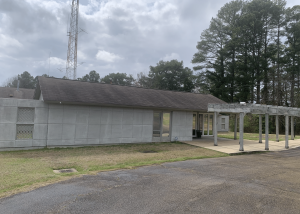
In the height of its success, some vouch was from 1974-78, ZZQ was completely freeform with a not-so-subtle hint of gonzo presentation. Let’s just say if Hunter S. Thompson lived inside the station’s signal range, he would have been tuning in.
Truly playing whatever the disc jockeys wanted to play, today’s all-too-common running rotation of the same 400 songs on syndicated stations across the nation would have made those inside the ZZQ building throw up.
Categorized as a rock station but not married to the genre, ZZQ would play anything from Elton John to Hank Williams to Dave Brubeck to New Riders of Purple Sage all combined with comedic skits, commercials that would now be considered on-air art, and themed sets that had listeners locked in. For example, if it was a rainy day, you might get a “rain set” that included songs like The Cascades’ “Rhythm of Rain,” Led Zeppelin’s “The Rain Song,” Jimi Hendrix’s “Rainy Day, Dream Away,” or Buddy Guy’s “Feels Like Rain.”
Perez Hodge, one of the most famous voices on ZZQ for his shifts as a late-night jock, explained the methodology behind the station during its heyday.
“Basically, you played whatever you wanted to play. Whatever worked. The format was really to get from point A to point B and how you got there musically or whatever method you used – comedy, skit, whatever – that was how it worked,” Hodge recounted. “You could take ‘Theme for an Imaginary Western.’ You could start there and do western cowboy songs.”
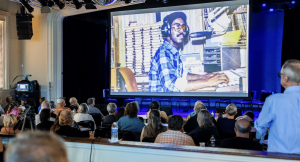
ZZQ’s unconventional style did what other stations in the area couldn’t by bringing new music in from places like New Orleans, New York, and San Francisco while forming a real connection with the community. That was the sticking point to it all – the connection ZZQ was able to form with its listeners.
Many times ZZQ played a song, it would be both the first time the listeners had heard it as well as the first time that song hit the airwaves anywhere in Mississippi. This mixed with the personalities of those who more than likely wouldn’t be allowed within 100 yards of a microphone at a more run-of-the-mill station created a tangible bond between the listeners and the talent.
That bond was furthered by the fact that when WJDX moved to freeform rock in 1968, AM was still king. Albeit a slowly diminishing king but still king in how most people consumed radio. This allowed for WZZQ upon its beginning in 1973 to serve as an almost underground hideout for music lovers to hear underground songs while getting them from people who, in a sense, were just like them.
As word got around town and in the neighboring areas of what WZZQ was doing, more and more people started tuning in to FM radio. During a listener’s event in August 2022, former ZZQ jocks and newsies joked that they might have made more money on transmitters than they did on sales.
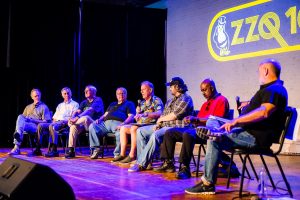
While money was not on the forefront of everyone at ZZQ’s minds – even though much of the talent still living wishes they would have been paid more – the overall experience of sharing music and having as much fun as possible while doing it was.
Robert St. John, a former radio man turned restaurateur, said during the forum that WZZQ was the only radio station he’s ever heard of where the jockeys had their own groupies. ZZQ talent included Strain, Hodge, David Adcock, Bruce Owen, Curtis “Sebastian” Jones, Wayne Harrison, Bill Ellison, Keith Carter, Sergio Fernandez, Bill Fitzhugh, Victor Hawkins, Johnny Sommer, Randy Bell, and more.
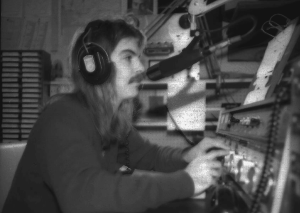
Together, they would sponsor community events with the “magic bus” always present. They would rent out charter buses to travel to concerts to take in both new and old music, and they would even host their own concerts in the Jackson metro. On July 4, 1974, nearly if not more than 10,000 people gathered at the reservoir’s Lakeshore Park to hang out with the ZZQ crew and hear Let’s Eat and Larry Raspberry and the Highsteppers.
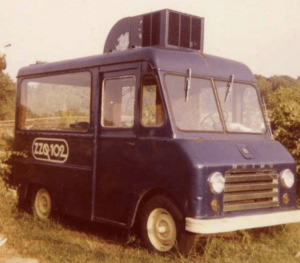
“They didn’t just play music. It was who they were. It’s the fact that they were so authentic and so natural on air, the fact that they were so accessible that made them successful,” Ford said. “They were out at the movies and at the concerts announcing the band. They really were like one of the listeners, but they were also sort of famous. They were our guys. They listened to music and the best of it. They brought us things they felt strongly about and pulled us in.”
This unique relationship, how WZZQ changed the radio scene in Jackson, and what ultimately led to the station’s downfall will all be covered in WZZQ the Movie. The film, which is now in the post-production stage, will round out at 60 minutes. While no release date has been formally announced, Ford promises it will be soon.


